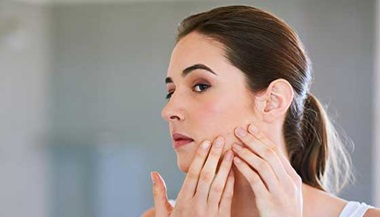Scabies
What is scabies?
Scabies is an infestation of mites (tiny insects) characterized by small, red bumps and intense itching. This highly contagious infection often spreads from person to person while they are sleeping together in the same bed, or during close, personal contact. The itching is caused by the mites burrowing into the skin where they lay eggs that hatch a few days later. Scabies can affect people of all ages and social classes. It is common all over the world. Scabies happens mostly in children and young adults.
What are the symptoms of scabies?
It may take between 4 to 6 weeks for a person to develop symptoms of scabies after coming in contact with an infected person.
In children younger than 2 years of age, the lesions caused by the mites tend to happen on the head, neck, palms, and soles. In older children and adults, the lesions are usually on the hands, between the fingers, wrists, belt line, thighs, belly button, in the groin area, around the breasts, and in the armpits. The following are the most common symptoms of scabies. However, each individual may experience symptoms differently. Symptoms may include:
-
Itching, usually severe
-
Rash, with small pimples or red bumps
-
Scaly or crusty skin (with advanced conditions)
The symptoms of scabies may resemble other skin conditions. Always talk with your healthcare provider for a diagnosis.
How is scabies diagnosed?
In diagnosing scabies, the skin and skin crevices are examined by your healthcare provider. A sample of skin, obtained by scraping the skin, may be examined under a microscope to confirm the presence of mites.
Treatment for scabies
Specific treatment for scabies will be determined by your healthcare provider based on:
-
Your age, overall health, and medical history
-
Extent of the infestation
-
Your tolerance for specific medicines, procedures, or therapies
-
Expectations for the course of the infestation
-
Your opinion or preference
Scabies is treatable and usually all members in a family are treated at the same time. Treatment may include:
-
Applications of prescription creams and lotions, such as permethrin and lindane solutions
-
An oral medicine called ivermectin may be used for severe cases
-
Oral antihistamine medicine (to help relieve itching)
-
In some cases, other topical ointments are recommended
In addition, it is important to wash all clothes and bedding in hot water and dry in a hot dryer. Clothing and other objects that cannot be washed (for example, pillows, stuffed animals) should be placed in a plastic bag for at least 1 week. This will kill any mites on or in these objects. The itching may continue for many weeks after the initial treatment of the scabies.




